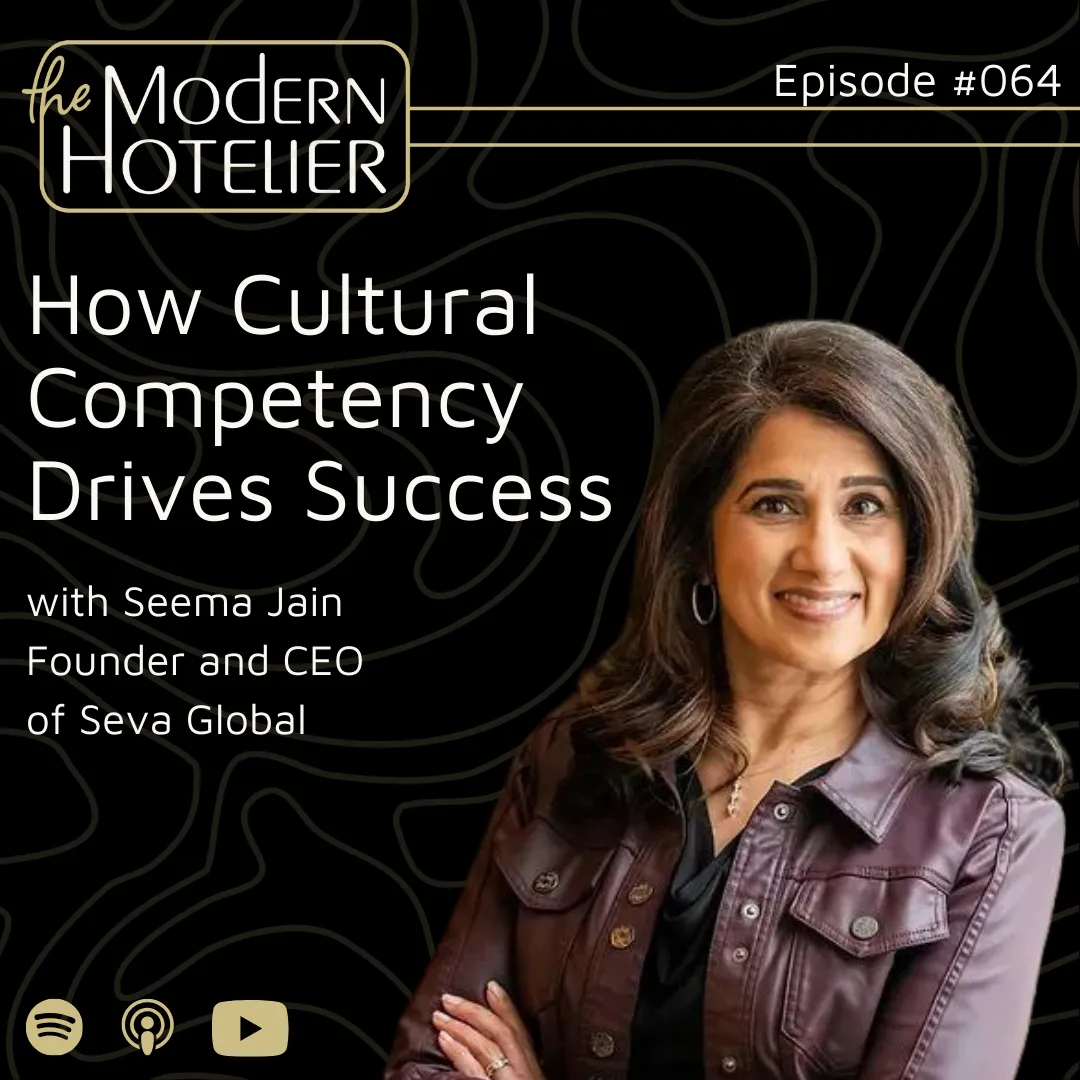Seema Jain is the Founder and CEO of Seva Global – Growing Business Through Cultural Competency. She has years of experience helping companies become more culturally competent when engaging with people from different backgrounds. In her past role as Senior Director, Multicultural Affairs at Marriott International, Seema had responsibility for developing tools and resources for Marriott associates and hotel properties to enhance cultural competencies to better serve the company's diverse guests and customers. She is also a co-founder of two non-profit organizations – the Supporting Excellence in Education Foundation (SEED), which awards scholarships to high school students, and the Young Jains of America (YJA), a national youth organization created to share Jain heritage and culture.
In this episode, Seema discusses her personal background as a first-generation American, her career journey from healthcare to hospitality, and her passion for promoting cultural competency in organizations. She shares insights on the benefits of cultural competency for employee engagement, customer satisfaction, and financial performance. This episode provides valuable perspectives on diversity, inclusion, and cultural intelligence in the hospitality industry and beyond.
In this episode, you'll learn about:
- How to deal with tough economic times while in a leadership role
- The importance of cultural competency in hospitality
- Why it is important to empower people at work
- The openness to future collaboration and networking opportunities
Join the conversation on today's episode on The Modern Hotelier LinkedIn page.
The Modern Hotelier is produced, edited, and published by Make More Media: https://makemore.media/
Episode Links
Seema Jain
David Millili
Steve Carran
Steve on LinkedIn
The Modern Hotelier
Transcript
Automatic Transcription - please excuse any errors

